MOJAVE DESERT SIDEWINDER
Scientific name: Crotalus cerastes cerastes
Size
The average size of a mature Mojave Desert Sidewinder is 1.5 - 2 feet, with some getting as large as 2.5 feet in length.
Description
The Mojave Desert Sidewinder looks as if it has horns over its eyes and is sometimes called the horned rattlesnake. These horns are actually upturned scales, and are not truly horns. The body is typically a sandy tan, gray, or cream color and is patterned with dark blotches of brown or grey on the back and sides. There is a dark cheek-stripe on both sides of the head that starts at the eye and runs diagonally down and backwards above the mouthline. The tail often has a few to several rings. The end of the tail has a rattle on it. The bottom of the rattle is black.
The Sidewinder gets its name from the unique sidewinding motion it uses to move. The sidewinding motion is used to move across loose sand without slipping. The sidewinder leaves a series of J marks in the sand.
The Mojave Desert Sidewinder has elliptical pupils that look like cat's eyes and like all pit vipers, has a heat-sensing pit between the nostril and eye on each side of its head.
Distribution
In the United States, the Mojave Desert Sidewinder is found in Arizona, California, Nevada, and Utah.
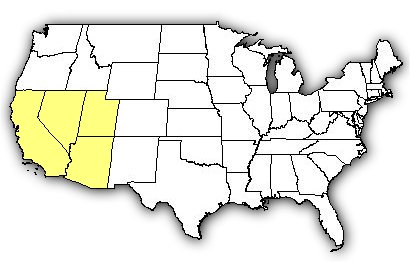
Map does not show area of true distribution, only the states in which there is a population.
Actual distribution in any highlighted state may be limited.
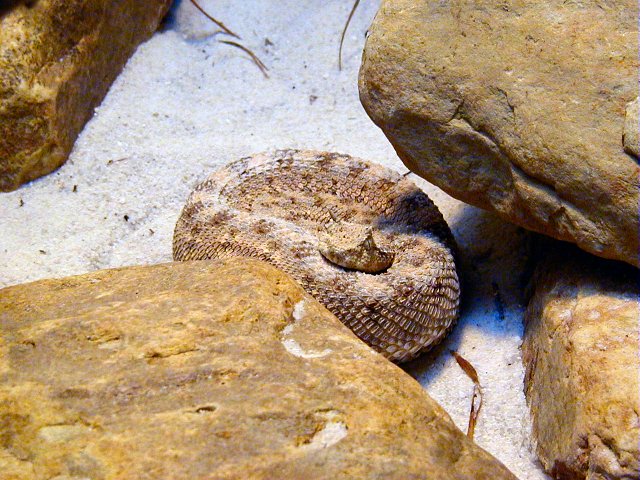
Photo © 2003 David W. George
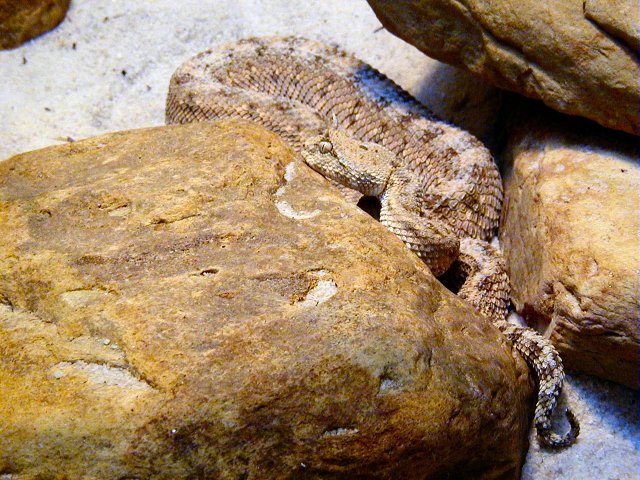
Photo © 2003 David W. George
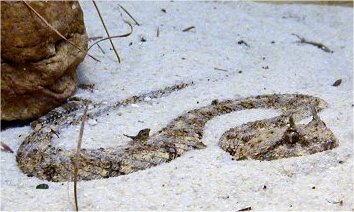
Photo © 2003 David W. George
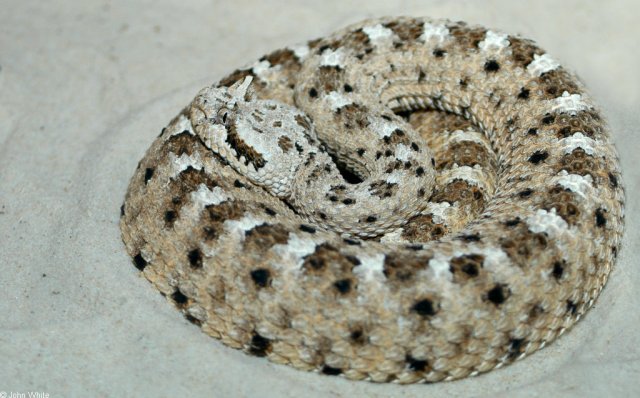
Photo © 2004 John White
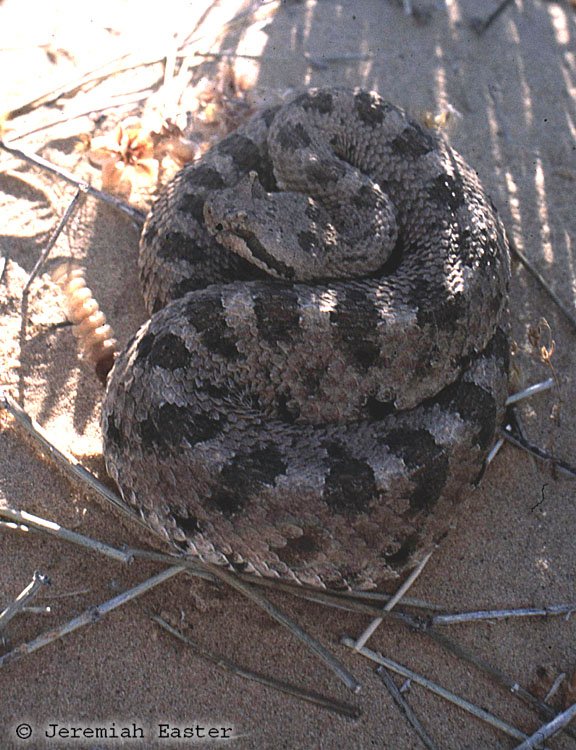
Photo © 2005 Jeremiah Easter
For more information on venomous snakes, please see the Venomous Links page.
Terms and Conditions | Privacy Policy
Change your Cookies Preferences
